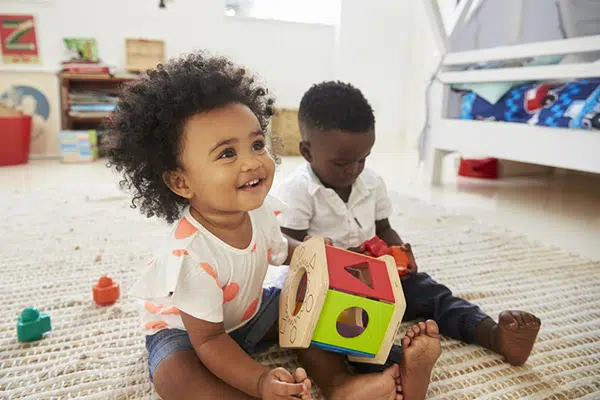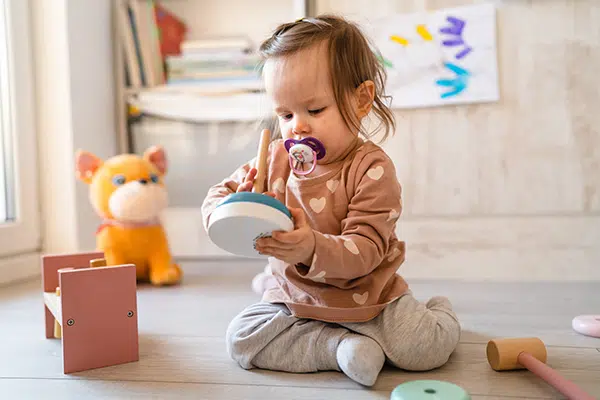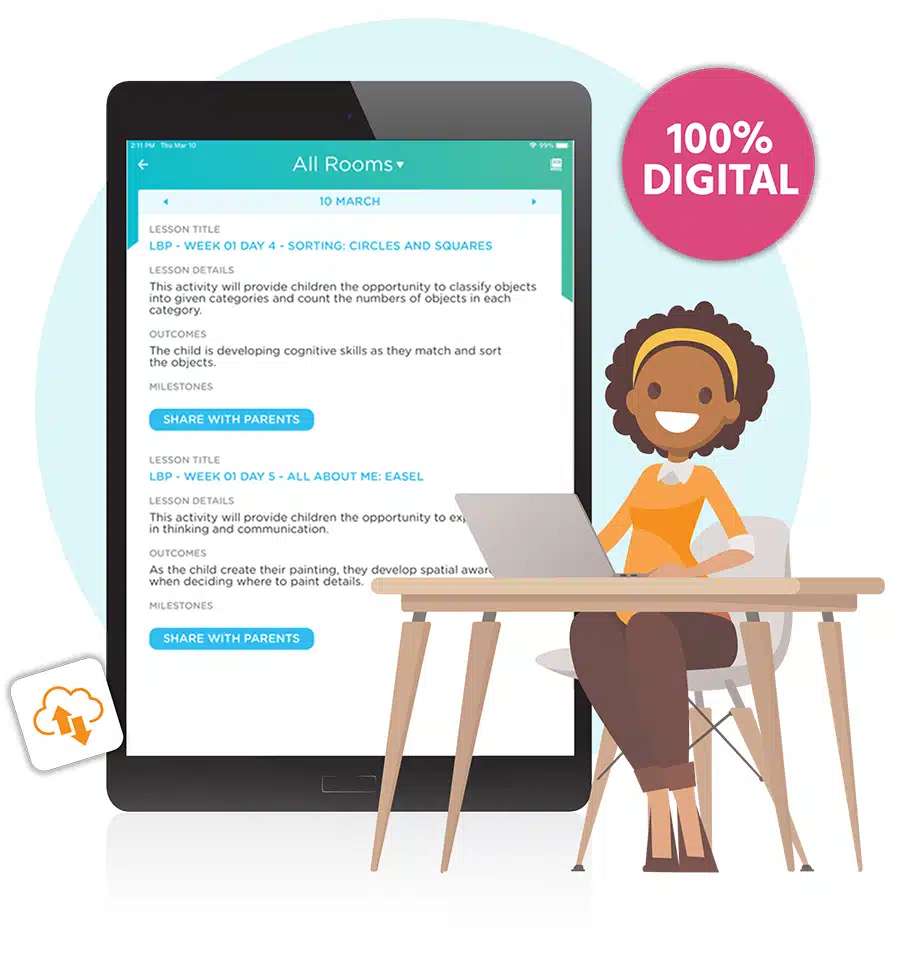
There is often a strong emphasis on group activities, cooperative play, and socialization in ECE. While these aspects of ECE are undeniably important, it’s equally crucial to recognize and appreciate the significance of solitary play. During solitary play, children have the freedom to explore their interests without the influence or direction of others.
This unstructured time allows them to tap into their innate creativity, which is a fundamental building block for future learning and problem-solving!
What is Solitary Play?
Solitary play, also known as independent play, is one of the earliest stages of play when children play alone because they have not developed socially to be able to play with others yet or because they choose alone time.
Solitary play is when children engage in activities by themselves without direct interaction with others, offers a unique set of benefits that contribute to a child’s holistic development.
Solitary play is often first seen in children from birth to 2, before they start interacting and playing with other kids, and teaches babies how to entertain themselves.
Let’s take a look at the importance of solitary play in ECE and how it supports a child’s growth and learning.
Fosters Independence

Solitary play encourages children to become more self-reliant and independent. When children engage in activities on their own, they learn to rely on their own creativity, problem-solving skills and decision-making abilities.
This independence not only empowers them but also sets a foundation for self-confidence that will serve them well throughout their lives.
Solitary play doesn’t mean complete isolation. Children engaged in solitary play often coexist with others who may be doing the same. This teaches them the importance of respecting others’ personal space and boundaries, a valuable social skill.
Builds Focus and Concentration
Cultivating the ability to focus and concentrate is becoming increasingly vital. Solitary play provides an opportunity for children to practice and improve their attention spans.
Whether it’s building with blocks, drawing or engaging in imaginative play, children learn to sustain their attention on a task, a skill that can benefit them in academic and life pursuits.

Encourages Self-Expression
Children use solitary play as a platform to express themselves freely. Through art, storytelling or even playing with dolls or action figures, they can convey their thoughts, emotions and ideas.
This self-expression is essential for emotional development and communication skills.
Through solitary play, children discover their interests and passions. Whether it’s a fascination with dinosaurs, a love for art or a curiosity about the natural world, solitary play allows them to explore these interests deeply, often laying the foundation for a lifelong love of learning.
Develops Problem-Solving Skills
When children play alone, they often encounter obstacles and challenges that require problem-solving. Whether it’s figuring out how to build a stable tower with blocks or navigating a complex narrative in imaginative play, solitary play prompts children to think critically and find solutions independently.
Reduces Stress and Anxiety
While social interaction is essential, it can also be overwhelming for some children, leading to stress and anxiety.
Solitary play provides a comfortable and low-pressure environment where children can relax and recharge. It can serve as a valuable coping mechanism for managing emotions and stress.
Adults might worry about children playing alone, but solitary play is very normal, according to Michigan State University. When children engage in solitary play, they are able to explore freely, master new personal skills like new motor or cognitive skills and prepare themselves to play with others.
How an Early Childhood Curriculum Can Help!

In ECE, it’s important to strike a balance between group activities and solitary play. Both forms of play offer unique benefits that contribute to a child’s overall development.
Developmentally appropriate play is an important part of how a child learns.
Procare Early Learning powered by Learning Beyond Paper is an all-digital early childhood curriculum specifically designed to meet the unique needs of educating children from infancy through pre-kindergarten.
The curriculum is embedded into Procare, making it easier and less time-consuming for busy teachers and administrators to provide high-quality education.
With Procare Early Learning powered by Learning Beyond Paper, child care centers can:
- Equip teachers with state-of-the-art online curriculum at their fingertips
- Dramatically reduce the amount of time spent on lesson planning each week
- Offer children a high-quality, developmentally appropriate curriculum
- Save money with this cost-efficient solution that’s integrated with Procare
This curriculum can be used in ALL child care center classrooms, with 52 weeks of lesson plans and more than 4,000 daily activities for infants, toddlers, preschoolers and pre-kindergarteners. Learning areas include STEAM, language and literacy, physical development, cognitive, music and movement as well as interactive reading. Plus, teachers get tips and tools they can use in real time!
How much time and money could your child care center save using a digital curriculum designed for young learners? Enter your number of staff, number of students and type of program into our online calculator to learn your potential savings!




